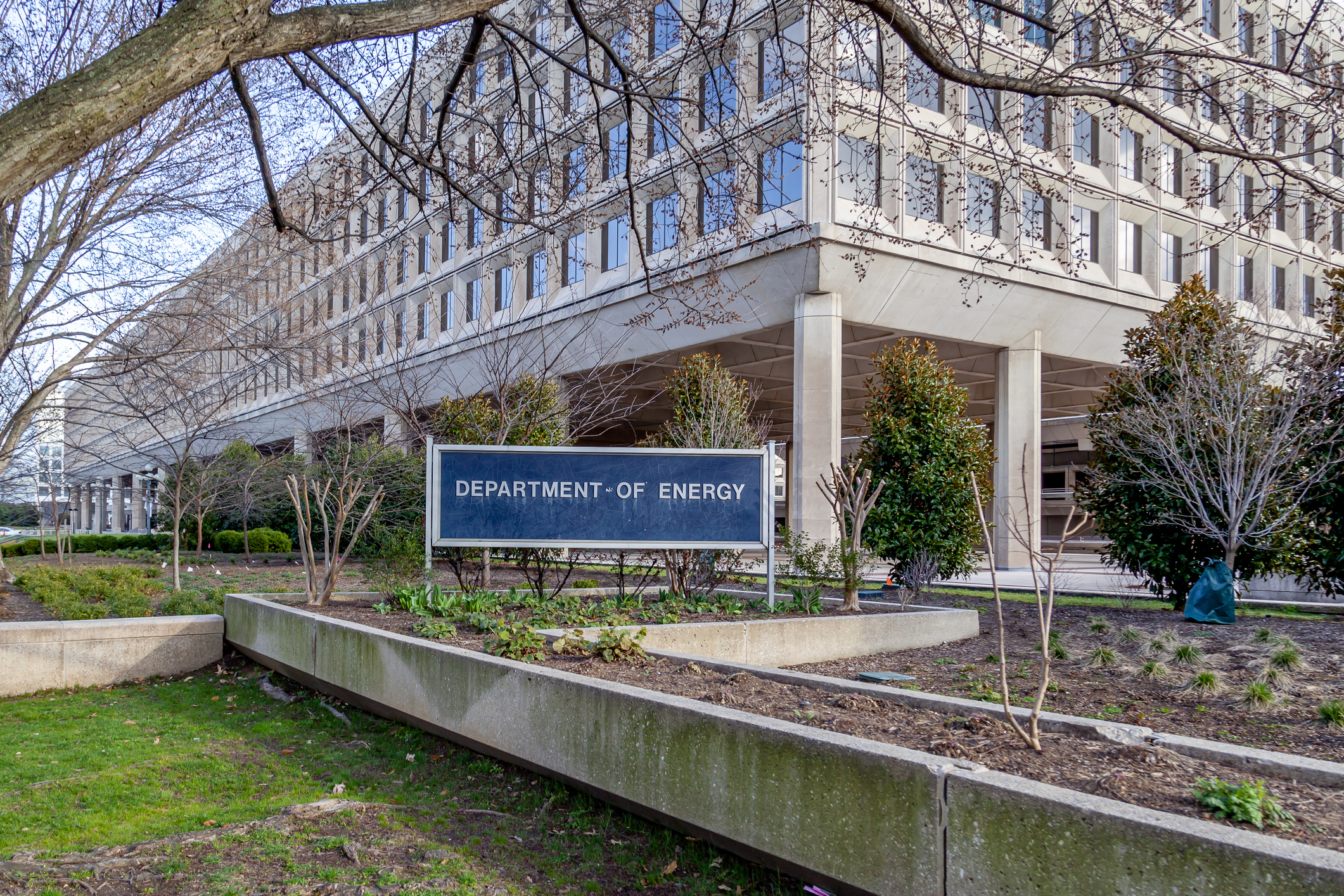Disclaimer: The use of this material does not imply endorsement by The Department of Energy or the United States Government.
This week, the Department of Energy (DOE) and the White House Office of Science Technology Policy (OSTP) released The National Blueprint for a Clean & Competitive Industrial Sector. The announcement came during COP29, the annual United Nations Climate Change Conference. The blueprint outlines a national strategy for a private sector-led, government-enabled transformation of US industrial manufacturing and was developed with input from more than 10 departments and agencies across the federal government, including the Department of Commerce and the Department of Defense. As a diverse, consensus-based coalition, the Industrial Innovation Initiative (I3) commends the DOE and OSTP for drawing from a diverse array of federal expertise for this first-of-its-kind DOE industrial blueprint.
The report outlines five strategies to guide near-term federal government coordination and details seven levers available to transition and transform US industrial manufacturing to boost competitiveness, reduce emissions, support good-paying jobs, and create a cleaner, more equitable future for all Americans.
It is encouraging to see that the strategies and levers closely align with recommendations made in I3’s 2024 Federal Policy Blueprint, namely industrial electrification and process heat, supportive infrastructure for carbon management and hydrogen, standards and data, and market innovation.
Introduction
The DOE blueprint’s strategies and levers build on investments made in the federal Bipartisan Infrastructure Investment and Jobs Act of 2021 (BIL) and Inflation Reduction Act of 2022 (IRA). It identifies now as a time for action through a holistic government approach.
“Manufacturing is a foundational part of the US economy, contributing 12 percent to Gross Domestic Product and employing nearly 13 million Americans, providing essential materials and products required for everyday lives and countless national security and broader economic benefits.”
The blueprint asserts that the federal government must create the conditions necessary to enable private industry to overcome technical and non-technical challenges to ensure its competitiveness for generations to come.
“The United States must seize this opportunity to lead the world toward a sustainable and thriving future.”
Five outcomes are envisioned from its execution: reducing industrial emissions, enhancing US industrial competitiveness and growing domestic manufacturing, increasing supply chain resilience, revitalizing industrial communities and protecting community health, and supporting good-paying jobs and union workers.
Strategies to Accelerate a Transition to a Clean US Industrial Sector
The blueprint’s outlined five strategies contain specific examples that, while not intended to be exhaustive, present opportunities for coordinated action across federal agencies to support a long-term private sector-led, government-enabled transformation of US industry. The report provides additional detail for each bullet point.
| Strategy | Examples |
|---|---|
| Accelerate deployment of commercially available, cost-effective lower carbon solutions in the near-term | – Clean low- to mid-temperature heat – Energy efficiency and electrification of non-heat unit operations – Low-cost clean electricity – Raw material substitution |
| Demonstrate emerging solutions at commercial scale to de-risk deployment | – Carbon capture, utilization, storage (CCUS) – High-temperature heat electrification – Clean hydrogen |
| Increase data use to drive emissions reductions and efficiency gains that can significantly improve performance and track progress | – Measure and report emissions to drive reductions and gain access to low-carbon markets – Improve operational efficiency using sensor networks and advanced controls – Use artificial intelligence (AI) and machine learning (ML) to improve system operations |
| Innovate and advance research to develop transformative processes and products for deep greenhouse gas emissions reductions | – Promote tech transfer and knowledge sharing to shorten development cycle timelines – Encourage a culture of innovation and engage workers – Validate and share information |
| Integrate across the product life cycle to reduce embodied greenhouse gas emissions in industrial products and minimize waste | – Work across the entire value chain of a product to identify opportunities to reduce the impact from emissions intensity of industrial products – Promote circularity – Cultivate responsible, geographic industrial clusters |
Levers to Accelerate Progress
The blueprint identifies seven levers with specific examples that, while not exhaustive, the federal government has available to enable a long-term private sector-led, government-enabled transformation of US industry. The report provides additional detail for each bullet point.
| Lever | Examples |
|---|---|
| Supply-side investments | – Tax incentives, grants, and loans for demonstration and deployment – Expand federal investment in research and development (R&D) to accelerate innovation – Prioritize supply-side investments and demand-side support in disadvantaged, deindustrialized, and energy communities. – Facilitate partnerships through research consortia and joint RD&D projects – Secure affordable clean electricity for energy-intensive industries |
| Create demand pull | – Use public procurement authority to establish market signals for low-carbon materials – Use financial assistance to expand private procurement of clean materials – Advanced market commitments for breakthrough technologies – Contracts for difference |
| Regulations, codes, standards, and reporting requirements | – Accelerate permitting through regulatory reforms to reduce risk for project developers – Provide technical assistance to help navigate regulatory and reporting requirements – Make environmental product declaration ubiquitous – Create an official US measurement of emissions intensity |
| Locally delivered benefits for workers and communities | – Create accountability for projects that negotiate legally binding agreements with unions and community groups – Technical assistance for unions and community groups – Worker retraining – Track labor and equity outcomes – Support voluntary programs |
| Develop common infrastructure and strengthen supply chains | – Prioritize infrastructure investments – Increase supply chain resiliency and security |
| Increase collaboration and data transparency | – Encourage the use and further development of methods to address rigorous comparisons across an integrated lifecycle |
| Leverage international cooperation opportunities | – Promote frameworks that encourage knowledge-sharing – Promote interoperable climate and trade policies – Establish transparency across borders – Provide export and licensing of industrial technology opportunities |
Conclusion: A Call to Action
The report concludes with a call to action. The industrial sector, whose emissions were once seen as “hard to abate,” is undergoing a transformation. While the challenges are real, markets for low-carbon materials are growing, technologies are being proven at a commercial scale, and innovative solutions in research and development are on the horizon. While the transition will take time, the next few years are critical for building momentum toward long-term economic and environmental goals.
“This Blueprint lays out federal actions that would support decarbonization of U.S. industry in line with the U.S. long-term strategy, while ensuring the greatest realization of co-benefits are achieved to strengthen economic prosperity, health, employment, and security across the country. Successful implementation of the programs already in progress, increased interagency cooperation, and a detailed plan with continued private sector engagement are the next steps for putting this Blueprint into action.”

